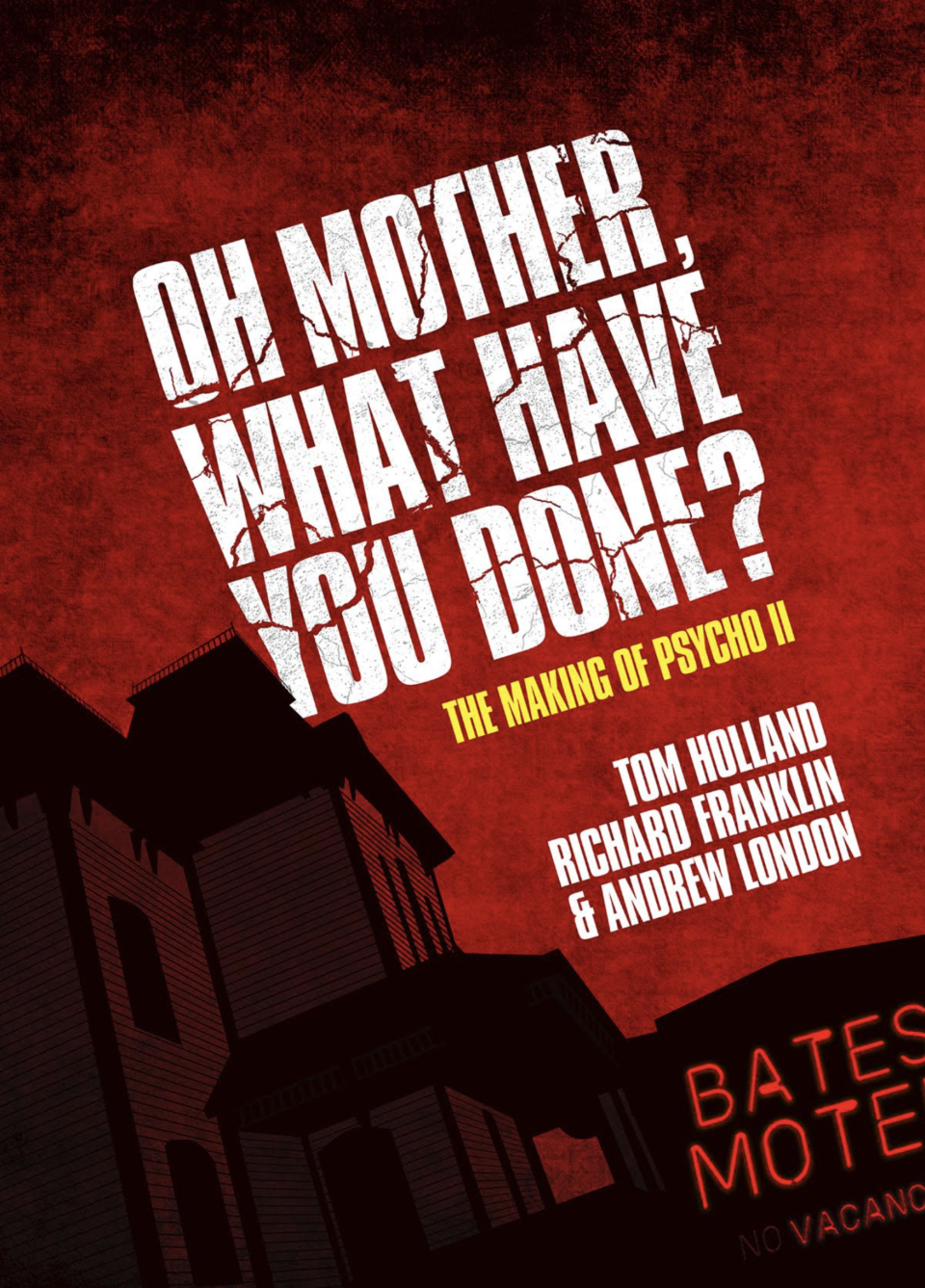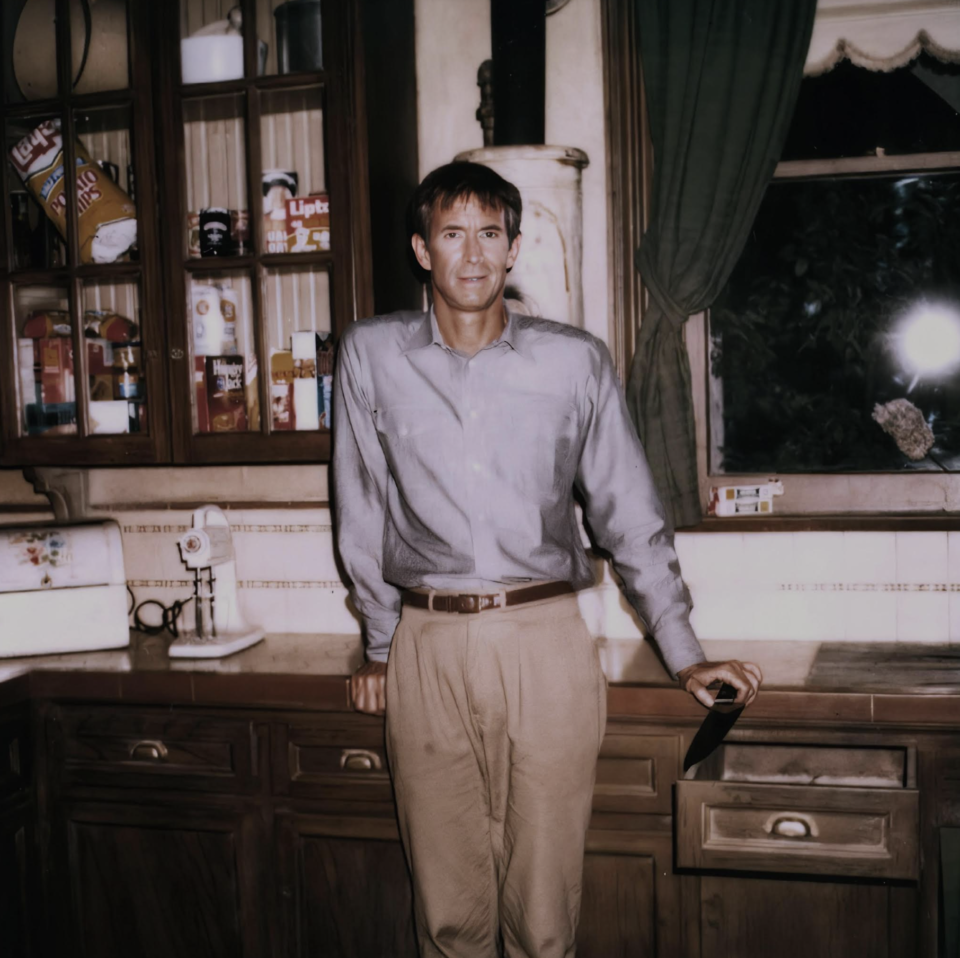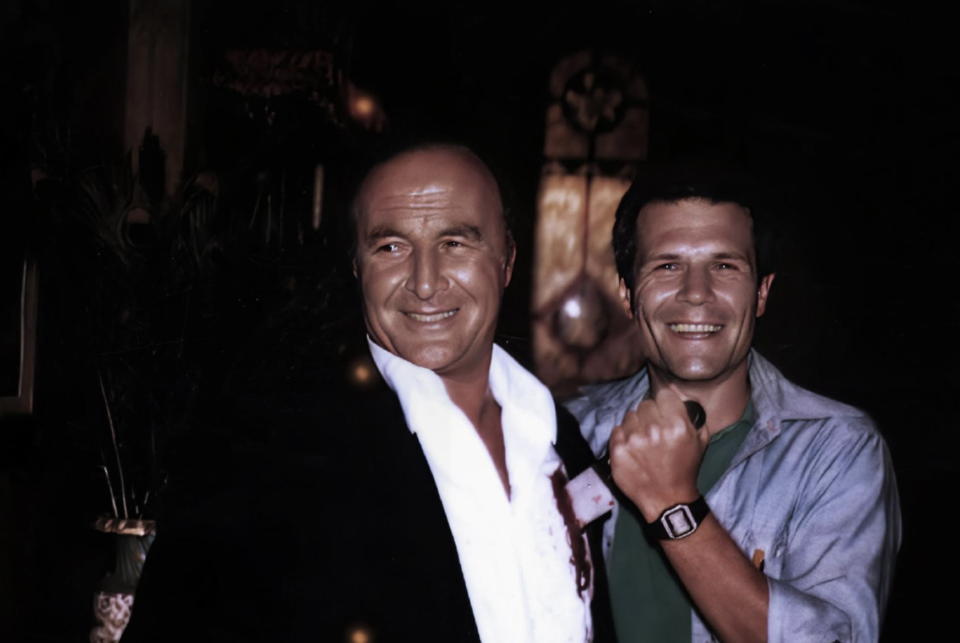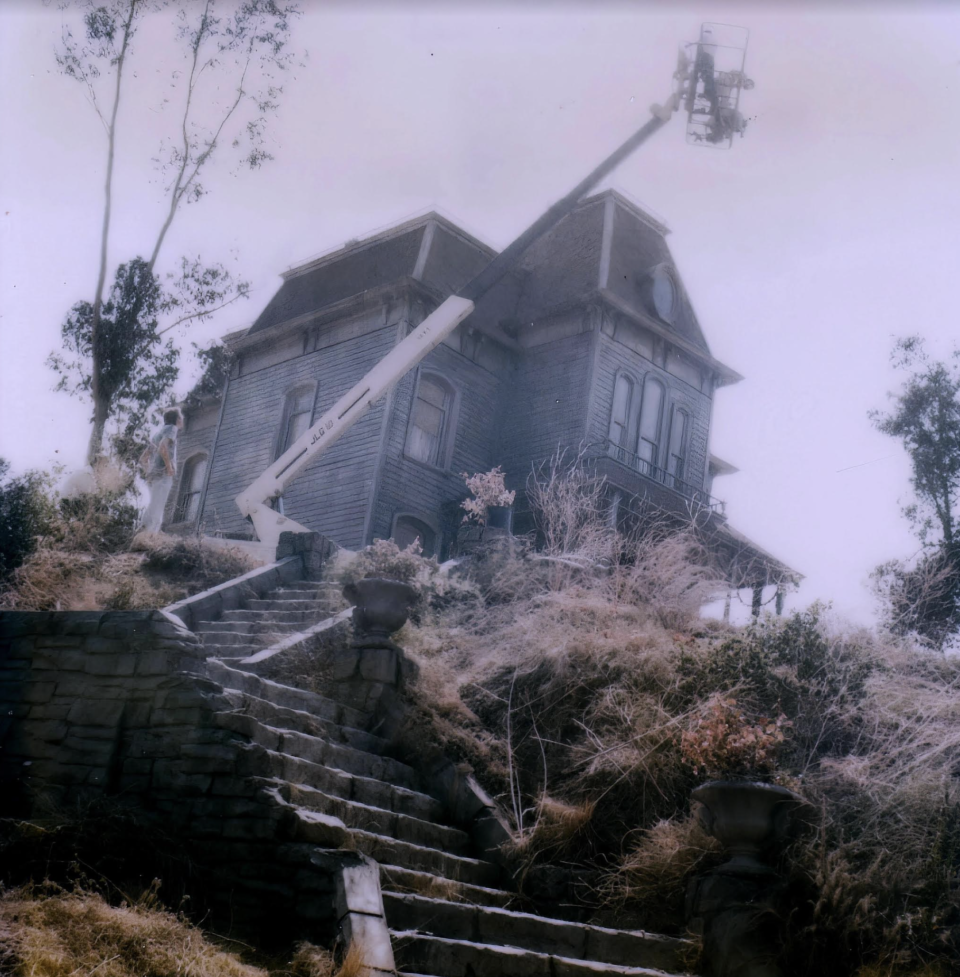Tom Holland Interview: The Horror Icon Talks Making ‘Psycho II,’ Adapting Stephen King, and His Killer New Book [Exclusive]

Horror icon and filmmaker Tom Holland (director of Child’s Play and Fright Night) joins me today to discuss the horror film that launched his career, 1983’s critically acclaimed Psycho II. Holland recently released the all-new 176-page book Oh Mother, What Have You Done? detailing the creation of the iconic sequel, now available from Holland House Entertainment. Check out our conversation below.

Dread Central: Congratulations on the new book. Where can we get it?
Tom Holland: It’s called Oh Mother, What Have You Done? It’s about the creation of Psycho II. You can get it on Amazon, or you can get it on my website if you’d like me to autograph it.
This past summer was the 40th anniversary of the movie, and there was this outpouring of support and congratulations. And it was just terrific; it really pleasantly surprised me. And then, at the same time, Australia did a 4K release of Cloak and Dagger. Soon after I learned that Richard Franklin, the director of Psycho II, for whom I wrote the script, had written these memoirs, and he did that before he passed in 2007. I was shocked. And then Richard’s widow, Jennifer, sent me the memoirs and the most significant chunk was on the creation of Psycho II. And it traced the whole creation and how it came to be and making the deal and hiring me and how we cast the movie and all the way through to the reception.
I mean, this was before sequels, and people said that if we tried to sequelize the classic movie Psycho, the critics would ravage us, and we’d never work again. I desperately needed the job, so it wasn’t a big challenge for me to go ahead. And then it was a seminal movie in my history of understanding horror.
Anyway, I read his memoirs, and wherever his memories and mine crossed paths, I wrote a paragraph or two on what was going on from my side. Then I got Andrew London, the editor, and he and I are the only two creatives that are still left that did the movie.
It was in 1982, and we started out as a cable movie. We didn’t have a movie unless we could get Tony Perkins to come back and play Norman. And at that moment in time, Universal was totally unaware of the commercial potential of a Psycho sequel, or any sequel for that matter. And so my challenge was to write a script that would make Tony, who turned the project down, say ‘yes.’
I had to write a script that was actor bait, really. And somehow, knock on wood, I don’t know, I did it. And Tony said yes. And then Universal put out a press release saying ‘Tony Perkins is going to come back and play Norman Bates in Psycho II.’ And the entire world went crazy. All of a sudden, Universal said, ‘Hey, wait a minute, maybe we got a feature film here and not just a cable movie?’
It was the second biggest movie in the summer of 1982 after the first Star Wars sequel, which tells you how huge it was. It was a shock!

DC: It took 22 years for it to get made. Is that because Anthony Perkins didn’t like any of the scripts before yours?
TH: Well, they hadn’t done them. They’d never tried. What happened was that Robert Bloch wrote a sequel novel to Psycho, and that gave Universal the idea. Universal owned the feature film rights, so nobody could do it except them. And so they were going to buy Robert Bloch’s book, and they read it, and they hated it. They wouldn’t even allow Richard or me to read it for fear of legal problems later on. But what Robert Bloch did was he had Norman come back out of the institution but then he had him immediately go on a murder spree and take a nun’s rosary and strangle her. That was in the first 30 pages. Then Norman Bates died, and the next 70% of the book was about other stories. And you couldn’t do Psycho II without Norman Bates. Norman was the centerpiece; that’s what Psycho was about. So we never read it. We never used any of it. And then I later appeared at the Writer’s Guild in a symposium with Robert Bloch, who was very unhappy with the level of violence in Psycho II. And I remember trying to defend the movie and myself, and Robert Bloch, of course, was a huge figure in horror. The film launched my career and also launched Richard Franklin’s career. He had done a couple of movies that were already excellent, Patrick and Road Games.

DC: Quentin Tarantino is famous for saying that he prefers your film to the original. Have you ever spoken with him about that?
TH: Not exactly. We were both at the Mick Garris Masters of Horror dinners together. But no, it never went into all of that. I don’t know if he knew that I was the Tom Holland that wrote it. I mean, one of the most fascinating things I ever saw was at the Masters of Horror dinner. Tarantino and John Landis were one-upping each other on horror trivia. That was really impressive.
DC: Who won?
TH: I think it was a dead heat, but the knowledge, I mean by God, they were down to box art on VHS boxes and horror movies. Really amazing.
DC: Meg Tilly is really stunning in Psycho II. What was that casting process like? Were you a part of that?
TH: I was a part of it, and it was fascinating and challenging, and Richard and I were both terrified we were going to make the wrong move. We had Jamie Lee Curtis come in to read, but she wanted to get out of horror. She was afraid of being type-cast because of Halloween.
Meg was not an experienced actress. I think she’d done one or two small films before that. Nothing else. And this was before her sister’s (Jennifer Tilly) ascendancy. But what she had was innocence, she was just extremely natural and fresh and innocent. You had to have her be innocent enough that Norman would form a relationship with her while working at that diner together.
And she pulled it off. And there’s a great scene between the two of them, the toasted cheese scene where he starts to realize that he’s losing it, that maybe because of what’s going on, he’s losing his sanity. He spent 22 years in an institution trying to get cured. And he’s holding on to his sanity in the midst of this attack in the house because he thinks his mother is coming back. In truth, somebody is trying to drive him insane so they can put him back in the institution, and it spins out of control, and murders start to happen again. Norman doesn’t know if it’s him or not.

DC: Out of all of your other films, what could potentially be the subject of a new book?
TH: Oh boy. Well, we’re having a celebration of Thinner down in Oceanside, California, on January 20th, which seems to be growing in awareness. And when that came out, it was a failure, but people have been getting into it now for years.
DC: I didn’t realize Thinner did poorly.
TH: It got savaged by the critics. It kept the audience rooted to the spot until the last two or three minutes. And in the last two or three minutes, the lead in it, Billy, loses. And the premise of the movie, and this is in Stephen King’s words, is “moral jellyfish gets squished in the end.” I took the movie because I thought it was a great character study and a lot of fun, but I would now say you have to be very, very careful about doing a downbeat ending. Or maybe it’s easier to do a downbeat ending where the guy you’re rooting for loses now … but back when Thinner was released, the audience hated him losing. They were with him the rest of the way. They were with him every damn minute.
But in a way, that isn’t true either because Psycho II is a tragedy and has a tragic ending. And yet it was such a shock for the audience that they nearly fell out of their seats. And because it was the last jolt of terror in the last 30 seconds was so strong, the audience loved it. The previews were great on that. So I guess I say after spending my life in the business and writing a lot of movies and directing a lot of movies, I still never know. Nobody knows anything for sure.
DC: If you could have carte blanche to adapt any other Stephen King property, what would you pick?
TH: Oh boy. Well, his towering achievement is The Stand. But I happen to have loved The Langoliers. It is a terrific piece of work from him, and that’s why I chose to make it. And it was extraordinarily difficult to shoot. It’s a great ensemble acting piece, but that was just at the moment when CGI was coming in. So now you look at the last 10 minutes with the reveal on the Langoliers, and it looks rather silly now because the tech has gone so far. That will be remade. But I thought what the actors did on that show was just terrific. And that’s what drew me to it. And it was a bear to make it because it’s about a group of people in an airplane that wakes up and half of the airplane passengers are gone, I thought that everybody involved did a terrific job in terms of their work.
DC: It’s great. It made me think that it could even work as a stage show, the way that you interpreted it.
TH: I rehearsed that, and I had the actors run through it in rehearsal when I was working with them before we started to shoot because once I started to shoot, I wasn’t going to have the time. It was such a difficult physical production, and it was like watching a play. You could just watch the actors in one room up on a small stage with just chairs working, just chairs, and it held you there. And that’s because the story was so strong. And because Steven had written it like a screenplay, if you look at it, you can see that it’s all real-time. There’s hardly any dissolves in it, and there’s something very immediate about it. And the suspense and the pressure never let up. I’m sure that somebody will do it again and update the CGI, and it’ll be much more impressive at the end. But I don’t know if they’re ever going to meet the level of work that our cast did.
DC: It was an honor to meet you, and everyone should definitely go pick up your book-
TH: Pick up Oh, Mother, What Have You Done? The Making of Psycho II. It’s a great film, by the way. That might be my best script. I certainly worked hard on it.
Categorized: Interviews News
